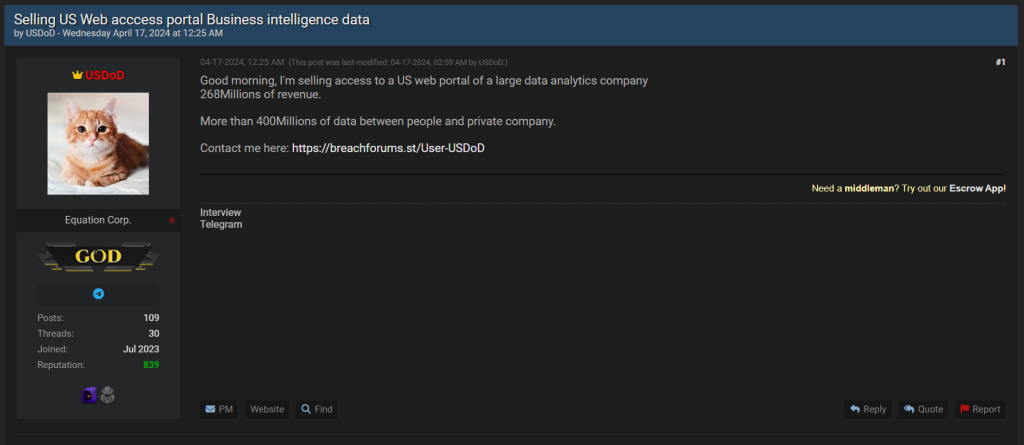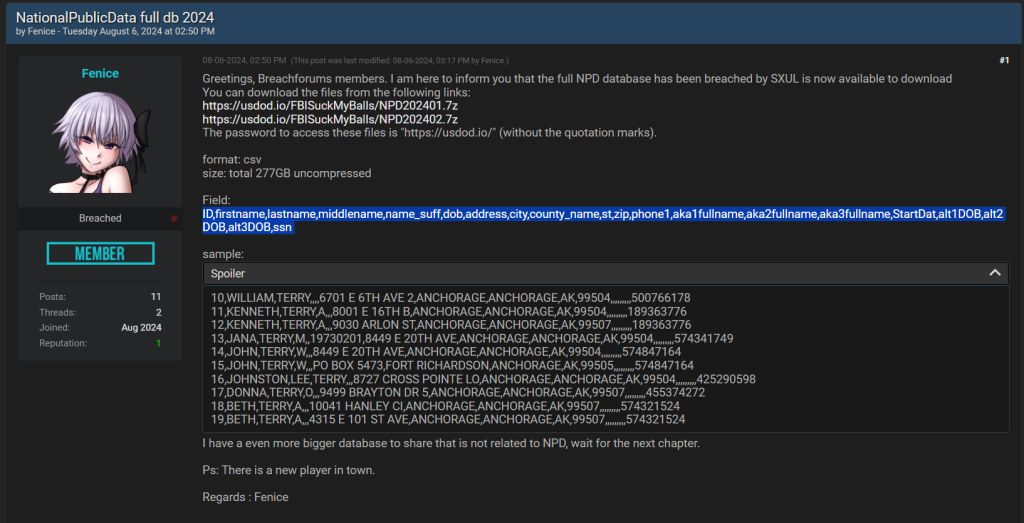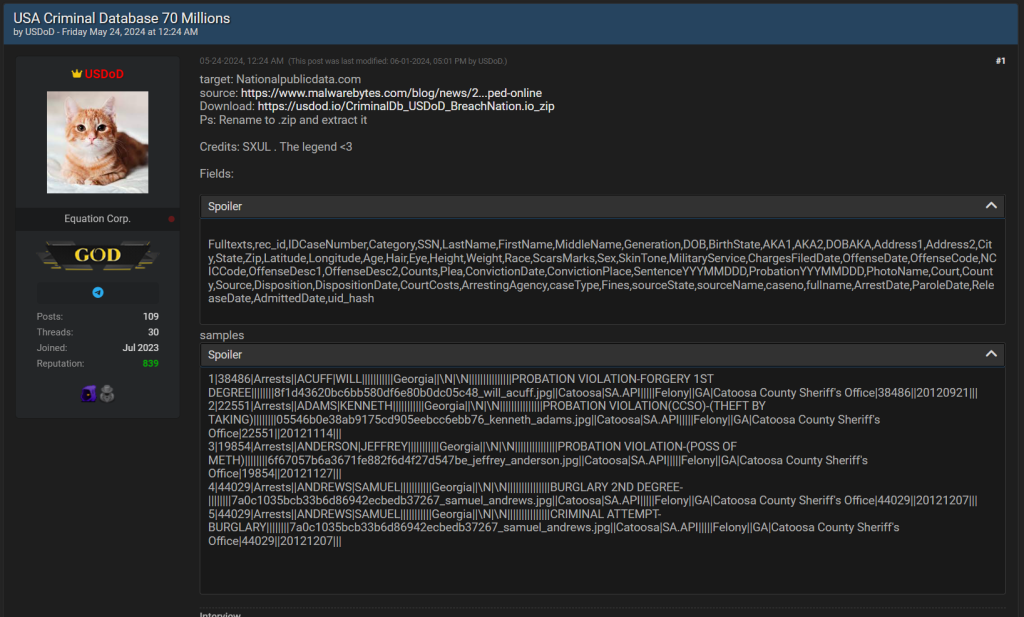Massive Data Breach Sparks Security Concerns
A hacker group known as USDoD has claimed responsibility for one of the most extensive data breaches in recent history, reportedly affecting the personal information of nearly every American. The group claims to have stolen a staggering 2.7 billion records, including Social Security numbers, physical addresses, and other sensitive data. The breach, which occurred in April 2024, has sparked widespread concern about the potential for identity theft and other fraudulent activities.
USDoD’s Chilling Claims

USDoD, a notorious hacking collective, initially attempted to sell the massive database for $3.5 million on a dark web forum, targeting other hackers and cybercriminals. The records allegedly include detailed personal information for individuals in the United States, United Kingdom, and Canada. Despite their attempts to monetize the stolen data, portions of the database have already been leaked online for free, raising the stakes for affected individuals and security experts alike.

According to reports, the data was stolen from National Public Data (NPD), a platform known for aggregating personal information for use in background checks by employers, private investigators, and other agencies. The Los Angeles Times reported that a class-action lawsuit has been filed in Fort Lauderdale, Florida, against National Public Data, accusing the company of failing to protect the sensitive information of billions of individuals.

The Scope of the Breach
According to reports from Engadget, Bleeping Computer, and the Los Angeles Times, this data dump includes 2.7 billion records that contain Social Security numbers, physical addresses, and even aliases associated with individuals. This breach could potentially affect every person living in the United States.
Security experts warn that the leaked data could be used to fuel a wave of identity theft, fraud, and other cybercrimes. Teresa Murray, consumer watchdog director for the U.S. Public Information Research Group, described the situation as a “five-alarm wake-up call” for anyone who has been complacent about protecting their personal information.
The gravity of this data breach cannot be overstated. With Social Security numbers and other personal information now publicly available, the risk of identity theft has surged dramatically. Fraudsters can potentially open credit accounts, apply for loans, or engage in other fraudulent activities using this stolen information. Experts fear that this could lead to a significant increase in identity theft cases across the nation.
Protecting Yourself from Identity Theft
In the wake of this massive breach, it’s crucial for individuals to take proactive steps to protect their personal information. Here are some immediate actions you can take:
1. Freeze Your Credit Files
One of the most effective ways to protect yourself is to freeze your credit files with the three major credit bureaus: Experian, Equifax, and TransUnion. This prevents anyone from opening new credit accounts in your name without your permission. While this won’t protect existing accounts, it can stop new fraudulent accounts from being created.
2. Monitor Your Accounts
Regularly check your bank accounts, credit card statements, and credit reports for any suspicious activity. If you notice any unauthorized transactions or accounts, report them to your financial institution immediately. You can also set up fraud alerts with the credit bureaus to receive notifications of any unusual activity.
3. Use Strong Passwords and Two-Factor Authentication
Ensure that your online accounts are protected by strong, unique passwords, and enable two-factor authentication wherever possible. Using a password manager can help you keep track of your passwords and ensure that you don’t reuse them across multiple sites.
4. Be Wary of Phishing Scams
In the aftermath of a data breach, scammers often take advantage of the situation by sending phishing emails or text messages. Be cautious of any unsolicited communications that ask for personal information, and never click on links or download attachments from unknown sources.
The breach of National Public Data and the subsequent leak of 2.7 billion records is a stark reminder of the vulnerabilities in our digital world. With Social Security numbers and other sensitive information now potentially in the hands of cybercriminals, it’s more important than ever to take steps to protect yourself. By freezing your credit files, monitoring your accounts, and practicing good cybersecurity hygiene, you can reduce the risk of becoming a victim of identity theft.
As the full impact of this breach continues to unfold, it serves as a sobering reminder of the need for stronger data protection measures and greater accountability for companies that handle our personal information.


